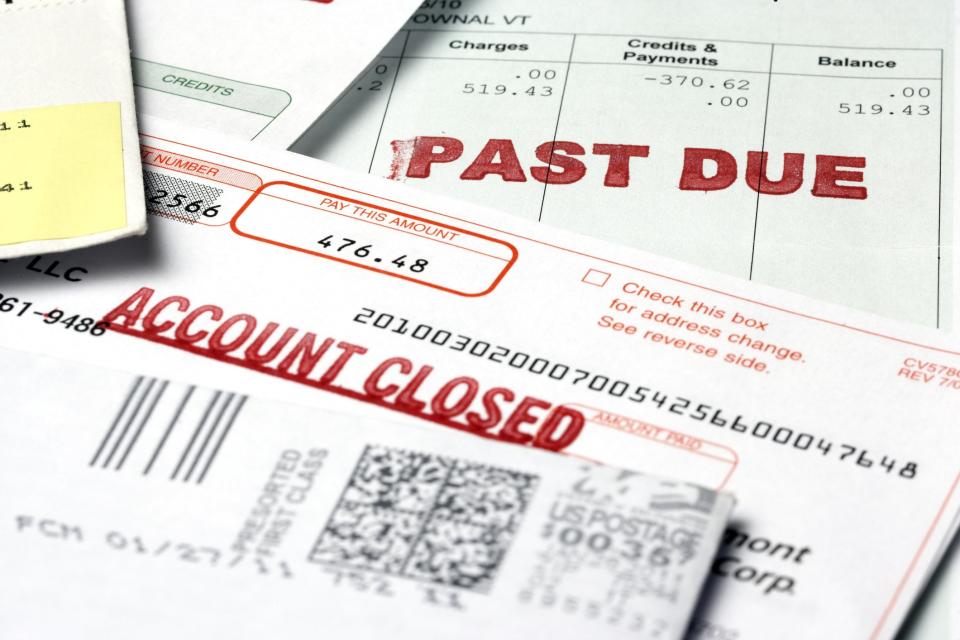4 Debts You Should Refinance in 2019
Is this a good time to refinance your debt? Here are a few debts that you should consider refinancing in 2019.

Image source: Getty Images.
Refinancing is a process by which you change the terms of current debt you owe. While many people are familiar with mortgage refinancing, you can actually refinance a whole bunch of different kinds of debt. In fact, here are four debts you may want to consider refinancing in 2019.
1. Student loan debt
If you have private student loans, refinancing them may make sense if you can qualify for a loan at a lower interest rate. Many people get relatively high rates while they’re in school because they aren’t very qualified borrowers. Or they need to get a cosigner, such as a parent, to agree to share responsibility for the loan.
If your credit and financial situation have improved, you may be able to qualify for a better rate than you had before -- and you may be able to qualify for a loan without a cosigner. If you can, refinancing can save you money on interest, potentially lower your monthly payment, and absolve the cosigner of a big responsibility.
You can also refinance federal student loan debt, but think twice about doing this because you’ll lose important borrower protection including flexibility in your repayment plan as well as the possibility of loan forgiveness for work in public service.
2. Car loan debt
Vehicle loans can be refinanced, and perhaps should be if you’re paying too high of a rate or if you have a variable rate loan and would prefer to lock in your interest rate in case rates rise.
You may also decide to refinance your car loan to a shorter term loan if you can afford higher monthly payments. Many people take very long car loans to get into a vehicle, but this can be a bad financial decision because you’ll end up paying on your car until it’s time to get a new one and never being able to go without a car payment.
If you can pay off your loan more quickly, then you can eliminate this big monthly payment from your budget and use the saved funds for other goals or to set aside so you can buy your next car for cash.
3. Credit card debt
Credit cards have notoriously high interest rates -- especially if you’ve ever done anything to trigger the penalty APR, such as maxing out your card or paying late.
If you have a bunch of credit card debt, it may be a smart move to refinance it in 2019 using a balance transfer card or a personal loan. With a balance transfer, you get a new card with a 0% promotional APR and transfer the balance of your existing cards to it. For as long as the promotional rate lasts, you’ll pay no interest. With a personal loan, you can opt for a low fixed interest rate to reduce your total costs, and will know up front exactly how long it will take to pay back your debt.
You can refinance a single credit card using a balance transfer or by taking out a personal loan and paying off its balance. Or you can refinance multiple cards and simplify your life greatly by going from having many payments to having just one.
4. Mortgage debt
If your mortgage rate is higher than current rates, refinancing could be a smart choice. You may also want to refinance if you have an adjustable rate mortgage and you’d prefer to switch to a fixed rate loan to lock in today’s rates. This is a good idea if you believe rates will rise in the future and your rate on your ARM could go up.
Refinancing mortgage debt can be costly because you’ll have closing costs to pay. If you refinance for a longer loan term, you could also increase your total costs because you’ll be paying interest for longer. But if you can drop your rate enough -- or lock in your rate to avoid future uncertainty -- refinancing is often still worth doing.
Should you refinance your debts?
Whether you should refinance these or other debts in 2019 will depend upon the rate you’re currently paying and the rate you could qualify for on a refinance loan. If you’re curious whether refinancing could save you money, start shopping around and compare rates and terms from lenders today. It never hurts to try to cut your borrowing costs!
The Motley Fool owns and recommends MasterCard and Visa, and recommends American Express. We’re firm believers in the Golden Rule. If we wouldn’t recommend an offer to a close family member, we wouldn’t recommend it on The Ascent either. Our number one goal is helping people find the best offers to improve their finances. That is why editorial opinions are ours alone and have not been previously reviewed, approved, or endorsed by included advertisers. Editorial content from The Ascent is separate from The Motley Fool editorial content and is created by a different analyst team.

 Yahoo Finance
Yahoo Finance 